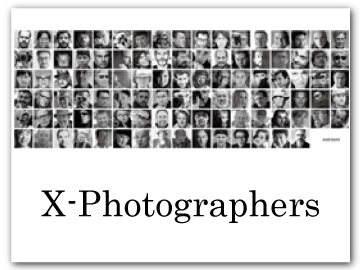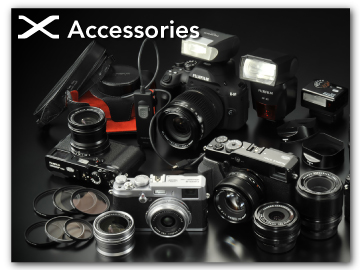Parts of the Camera
The parts of the camera are listed below.
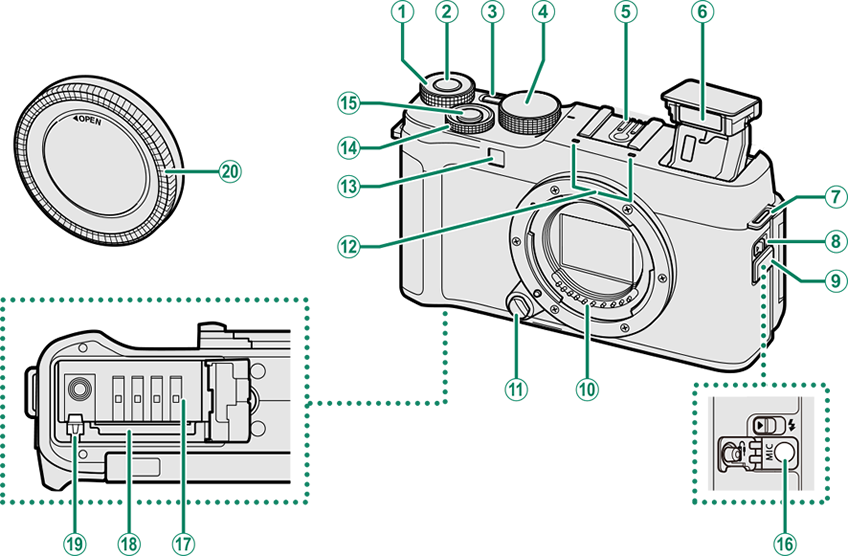
ARear command dial
B[Fn1] button
C[ON]/[OFF] button
DMode dial
EHot shoe
FFlash
GStrap eyelet
HN (flash pop-up) switch
IConnector cover
JLens signal contacts
KLens release button
LMicrophone
MAF-assist illuminator
Self-timer lamp
NFront command dial
OShutter button
PMicrophone/remote release connector (⌀2.5 mm)
QBattery chamber
RMemory card slot
SBattery latch
TBody cap
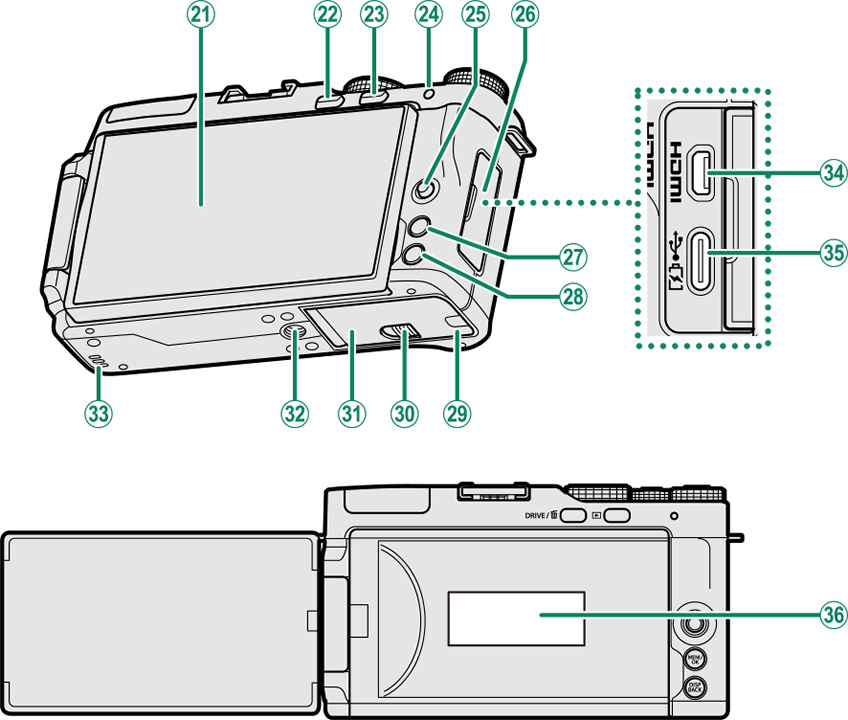
UVari-angle LCD monitor
Touch screen
V[DRIVE] button
b (delete) button (playback mode)
Wa (playback) button
XIndicator lamp
YFocus stick (focus lever)
ZConnector cover
a[MENU]/[OK] button
b[DISP] (display)/[BACK] button
cCable channel cover for DC coupler
dBattery-chamber cover latch
eBattery-chamber cover
fTripod mount
gSpeaker
hHDMI Micro connector (Type D)
iUSB connector (Type C)
jSerial number plate
- The Serial Number Plate
- The Mode Dial
- The Focus Stick (Focus Lever)
- The [DRIVE] Button
- The Command Dials
- The Indicator Lamp
- The LCD Monitor
The Serial Number Plate
Do not remove the serial number plate, which provides the FCC ID, KC mark, CMIIT ID, serial number, and other important information.
The Mode Dial
To select a shooting mode, rotate the dial until the icon for the desired mode aligns with the index.
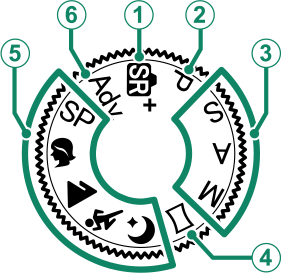
| Mode | Description |
|---|---|
| The camera automatically optimizes settings to the scene. | |
| Aperture and shutter speed can be adjusted using program shift. | |
|
C[S] ([SHUTTER PRIORITY AE]) |
Select for full control over camera settings, including aperture ([M] and [A]) and/or shutter speed ([M] and [S]). |
| Follow an on-screen guide to create a panorama. | |
| Choose a scene suited to the subject or shooting conditions and let the camera do the rest. | |
| Take photos with filter effects. |
The Focus Stick (Focus Lever)
Tilt or press the focus stick to select the focus area. The focus stick can also be used to navigate the menus.
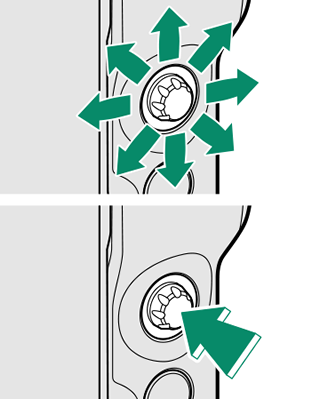
Use D[BUTTON SETTING] > [FOCUS LEVER SETTING] to choose the role played by the focus stick (a[FOCUS LEVER SETTING]).
The [DRIVE] Button
Pressing the [DRIVE] button displays drive mode options, where you can choose from the following the drive modes.
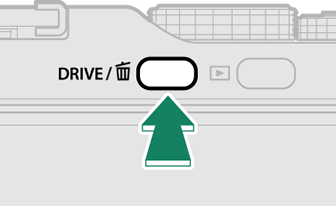
| Mode | |
|---|---|
| B | [STILL IMAGE] |
| I | [CONTINUOUS] |
| O | [AE BKT] |
| W | [ISO BKT] |
| X | [FILM SIMULATION BKT] |
| Mode | |
|---|---|
| V | [WHITE BALANCE BKT] |
| Y | [DYNAMIC RANGE BKT] |
| h | HDR |
| F | [MOVIE] |
The Command Dials
The rear and front command dials are used for the operations below.
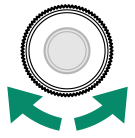
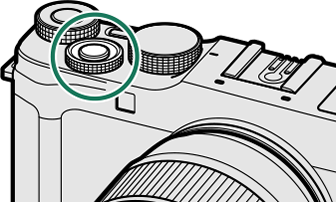
| Shooting |
Choose the desired combination of shutter speed and aperture (program shift). Adjust aperture. Choose a shutter speed. |
|---|---|
| Menus | Select menu tabs or page through menus. |
| [Q] Menu | Adjust settings in the quick menu. |
| Playback | View other pictures. |
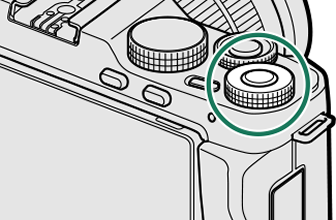
| Shooting |
Choose a shutter speed. Adjust exposure compensation. |
|---|---|
| Menus | Highlight menu items. |
| [Q] Menu | Adjust settings in the quick menu. |
| Playback |
Zoom in or out (full-frame playback). Zoom in or out (multi-frame playback). |
The Indicator Lamp
The indicator lamp shows camera status as follows:
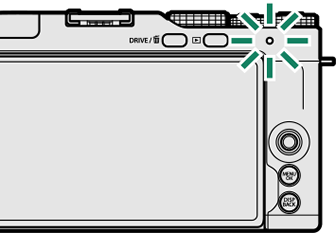
| Indicator lamp | Camera status |
|---|---|
| Glows green | Focus locked. |
| Blinks green | Focus or slow shutter speed warning. Pictures can be taken. |
| Blinks green and orange | Camera on: Recording pictures. Additional pictures can be taken. Camera off: Uploading pictures to a smartphone or tablet (Displayed only if pictures are selected for upload.). |
| Glows orange | Recording pictures. No additional pictures can be taken at this time. |
| Blinks orange | Flash charging; flash will not fire when picture is taken. |
| Blinks red | Lens or memory error. |
Warnings may also appear in the display.
The LCD Monitor
The LCD monitor can be tilted or reversed for ease of viewing. You will find this feature particularly helpful when shooting self-portraits (aSelf-Portraits (Selfies)). Be careful not to catch your fingers or other objects between the monitor and the camera body.
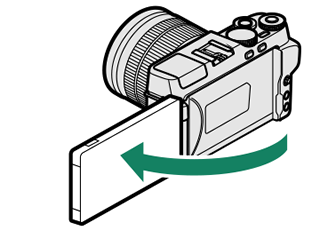
The LCD monitor also functions as a touch screen (aTouch Screen Mode).

 .
.
